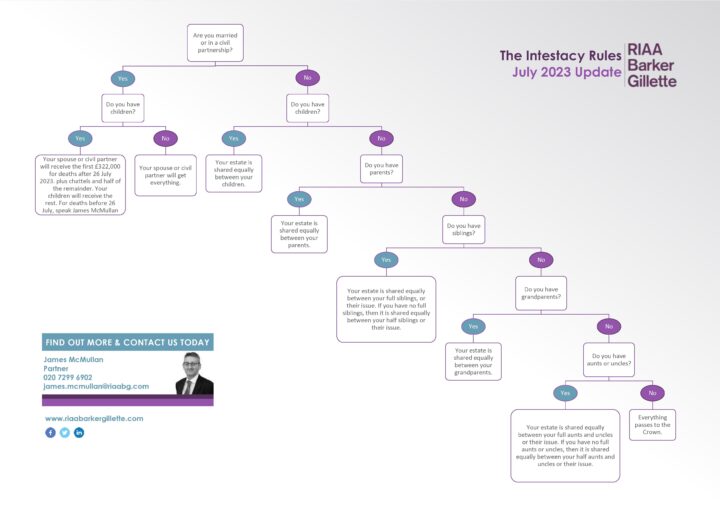At the start of a venture, small business owners tend to focus on raising finance and securing clients in order to establish and grow their business. What is often not in such sharp focus is the intellectual property which arises out of the branding of the business: the name of a restaurant or a clothing label, for example. But brand protection is paramount.
This is understandable. At the outset, a business may have limited branding, and any intellectual property is likely to be of little material value, but business owners need to be aware that there are risks to this approach, which can have severe consequences once the business develops.
Protect your brand from the start
Put simply, if you do not protect the branding of your business, you risk competitors branding their business in a similar fashion, drawing away your clients and profits.
Successful businesses require a unique, established and recognisable brand and in order to achieve this, the necessary protection needs to be put in place. If your business is unable to deliver this, it could face real problems.
Imagine this scenario: you work tirelessly on your business for five years. You establish a client base and develop a recognisable brand only to find out that one of your competitors is using aspects of your branding to appeal to your customers. Not only could it be difficult to enforce your rights without any registered protection in place, the competitor could even have the ability to stop you from marketing your business in the way you want.
Trademarks
One way to protect against this is to register a trademark, which grants the holder the statutory right to use the mark exclusively in connection with the goods or services it is registered for. Trademarks prevent others from using identical or similar marks and shield your business from competitors seeking to imitate or reproduce your goods or services.
Trademark protection is most commonly applied to trading names, slogans, and logos. For example, the brand name Tesco and its slogan “Every Little Helps” and Nike with its “Swoosh” logo. The mere mention of those marks illustrates the point that businesses become synonymous with their trademarks.
Putting protection in place
Clearance searches
Before making an application to register a trademark, it is vital to undertake clearance searches to ensure no other marks may be infringed.
The process is made slightly more complex in that registered and unregistered trademarks may exist. This means that whilst some marks may be easily found on the Intellectual Property Office’s (IPO) database, other marks will be harder to find, meaning that all searches should be wide-ranging and should be undertaken with a high degree of care and attention.
If done properly, this process can yield unintended benefits, particularly when existing marks that are identical or similar to your own are found. Whilst this may be frustrating, it allows you to tweak the branding of your business, meaning that registration and protection are possible, and an expensive rebrand is not required at a later date under the threat of a third-party claim.
The simple act of undertaking searches early on can give your business a great head start.
Application
Once clearance searches have been performed, the trade mark registration application must be made to the IPO and assigned to a certain class.
There are 45 classes in total, each accounting for a particular sector in which goods and services are provided. It is important that your mark is classified appropriately, as this process will determine the extent of the protection afforded to the mark.
An application for protection in one class costs either the basic fee of £170 (plus £50 for each additional class) as a flat fee or the right start fee of £100 (plus £25 for each additional class) as an initial payment for the application to be reviewed by an IPO examiner, plus an additional fee of £100 (plus £25 for each additional class) should the applicant decide to proceed in light of the examiner’s report.
Post application
Once the application has been made, the IPO will provide an examination report within 20 days in which they can object to the application and provide an overview of any defects which the prospective mark may have. For example, a defect could be that the mark is too generic or that the mark is too similar to an existing mark.
You should seek legal advice throughout this period to ensure money is not wasted on unsuccessful applications.
The application can progress to the next stage if the IPO has no objections.
Publication
The application must be published in the trademarks journal two months before registration, during which time it can be opposed. The mark will be registered if no objections are raised during this period. If objections are raised, the party in opposition can issue one of two responses to the application:
- Threatened response: In this case, the two-month period is extended by one month, and the parties negotiate on the registration of the mark. This negotiation can take many forms and could involve the opposing party asking the applicant to reduce the scope of the application. If negotiations are unsuccessful, the opposing party would need to decide whether to make a formal opposition.
- Formal opposition: The opposing party formally opposes the application. Both parties would make representations to the independent body presiding over the dispute. It is more than likely that both parties would incur costs, and if the applicant loses, they may well be liable for their opponent’s fees.
Registration
If no objections are raised (or any objections raised are successfully resolved), the mark can proceed to the next stage and become formally registered.
The registration of the mark lasts for ten years and can be renewed for further periods of ten years (subject to the payment of renewal fees).
From the point of registration onwards, the proprietor gains a valuable and exploitable commercial asset. The business’ branding becomes much easier to protect, and a deterrent is put in place to prevent third parties from exploiting the goodwill of the business and potentially drawing customers away.
Speak to Veronica Hartley today about Brand Protection.
Note: This article is not legal advice; it provides information of general interest about current legal issues.

